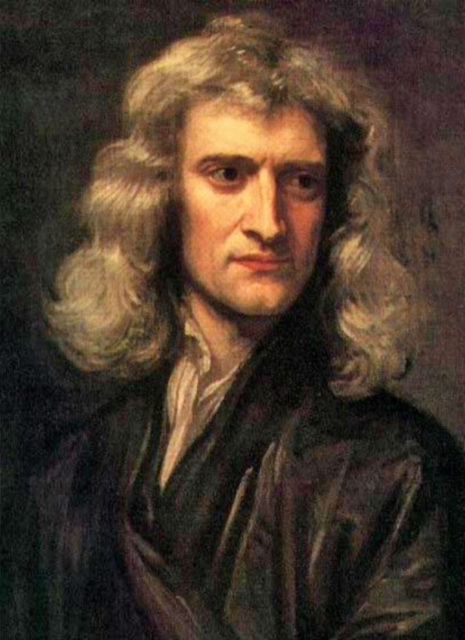Sir Isaac Newton was a revolutionary mathematician, astronomer, and physicist, who has been praised as one of the greatest scientists of all times.
His mathematical research led to the development of classical mathematics, he devised the laws of gravity and motion which became the fundamental scientific principles of physics, and he designed and built the first functional reflecting telescope.
During his middle years, he was a professor at the Trinity College, Cambridge. He made many of his scientific discoveries while lecturing optics, physics, and philosophy. His genius was promptly noticed by many scientific authorities of the time and earned him the title of the Fellow of the Royal Society in 1672 when he was 30 years old.

Despite the fact that Newton’s life revolved almost exclusively around scientific research, his final position was somewhat unscientific. In 1696, he moved to London after he had accepted a position of the warden of the Royal Mint.
The Royal Mint is a British governmental institution that controls the production of British coins. Newton became the Master of Mint in 1699 and chose to partake in the government’s war against the money counterfeiters.
He reformed the government’s policy on counterfeiting and sought to punish counterfeiters and clippers. At the time when Newton was Master of Mint, counterfeiting money was considered as an act of high treason: those convicted of the crime were sentenced to death and executed by being hung, drawn and quartered.
Newton was actively involved in investigations of suspected felons: he would dress up as a rugged bum and visit local bars, taverns, and markets to gather information about his suspects. This allowed him to persecute and convict at least 28 counterfeiters of coins, successfully.
Although extremely fond of persecuting counterfeiters, Newton opposed the death penalty. At the beginning of his incumbency as Master of Mint, he was afraid that he would lack the emotional strength required to convict criminals to death.

However, he was an avid enforcer of constitutional laws and therefore decided to abide by them and authorize execution of counterfeiters.
Aside from being one of the most influential scientists ever, Sir Isaac Newton was an enthusiastic hunter of counterfeiters and a seeker of justice. Ironically, the crest of his esteemed family includes two crossed bones, a symbol commonly associated with piracy, viciousness, and anarchy.
